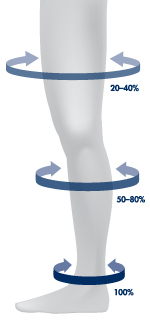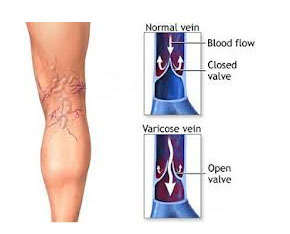tired, achy legs? Call today
What are venous diseases?
Venous insufficiency is caused by a series of disorders in the vein including when the valves of the veins fail to function properly. This interferes with venous return and causes blood to pool in the veins. Venous insufficiency can become more chronic and lead to spider veins, varicose veins, phlebitis, blood clots, and changes in the skin. The most serious disorder is a venous leg ulcer. Chronic Venous Disorders (CVD) is a collective term used to describe a long-standing condition involving impaired venous return in varying degrees of severity.
Symptoms of CVD include:
- Edema (swelling)
- Feeling of heaviness in the legs
- Pain or cramps in the calves
- Skin discolorations
- Dermatitis (skin problems)
- Dry or weeping eczema
- Venous leg ulcer
- Visible Veins
A feeling of discomfort in your legs may be a sign of an underlying venous disorder. These symptoms include tired and achy legs. You may experience them especially when sitting or standing for prolonged hours.
How does graduated compression therapy help with the management of venous problems?
As a person walks, the contraction and relaxation of the calf muscles around the veins aid in moving blood toward the heart. The external graduated compression of compression socks and stockings act as a layer of muscle by gently squeezing the stretched vein walls together, allowing the valves to close. The cavity of the vein is reduced, thereby restoring blood flow to a normal state and aiding overall circulation.
To be most effective, the socks or stockings should be put on at the start of your day and removed before you go to bed. Some people have an inherited weakness of the vein walls or valves which creates additional challenges to venous return. Wearing graduated compression socks or stockings is vital for the prevention and treatment of varicose veins and other circulatory problems.


